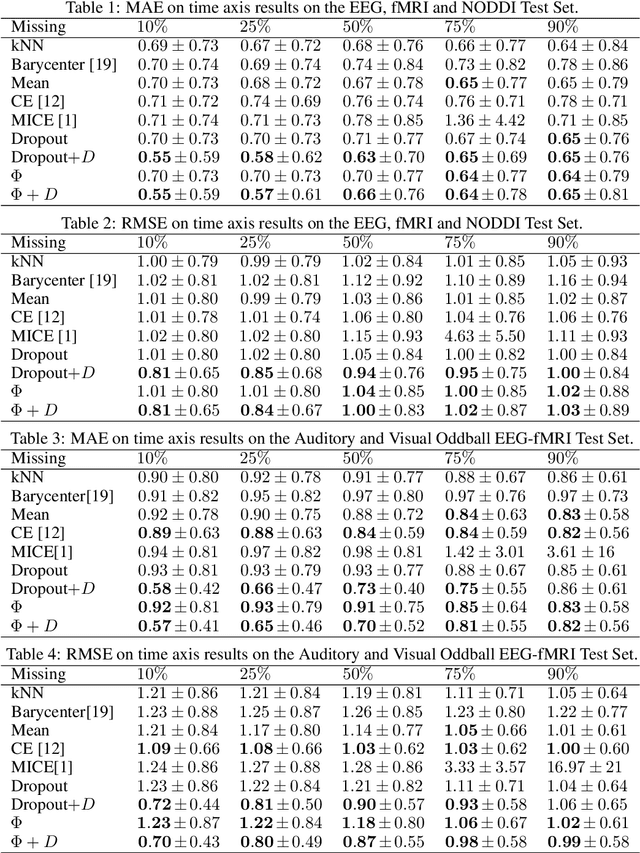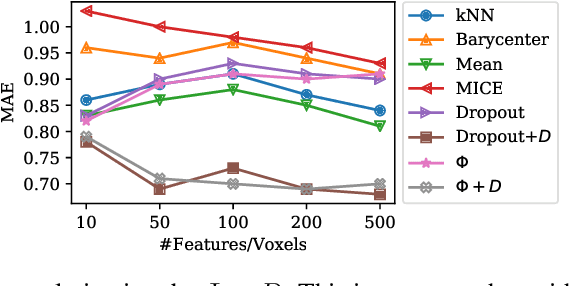fMRI Multiple Missing Values Imputation Regularized by a Recurrent Denoiser
Paper and Code
Sep 26, 2020



Functional Magnetic Resonance Imaging (fMRI) is a neuroimaging technique with pivotal importance due to its scientific and clinical applications. As with any widely used imaging modality, there is a need to ensure the quality of the same, with missing values being highly frequent due to the presence of artifacts or sub-optimal imaging resolutions. Our work focus on missing values imputation on multivariate signal data. To do so, a new imputation method is proposed consisting on two major steps: spatial-dependent signal imputation and time-dependent regularization of the imputed signal. A novel layer, to be used in deep learning architectures, is proposed in this work, bringing back the concept of chained equations for multiple imputation. Finally, a recurrent layer is applied to tune the signal, such that it captures its true patterns. Both operations yield an improved robustness against state-of-the-art alternatives.
 Add to Chrome
Add to Chrome Add to Firefox
Add to Firefox Add to Edge
Add to Edge